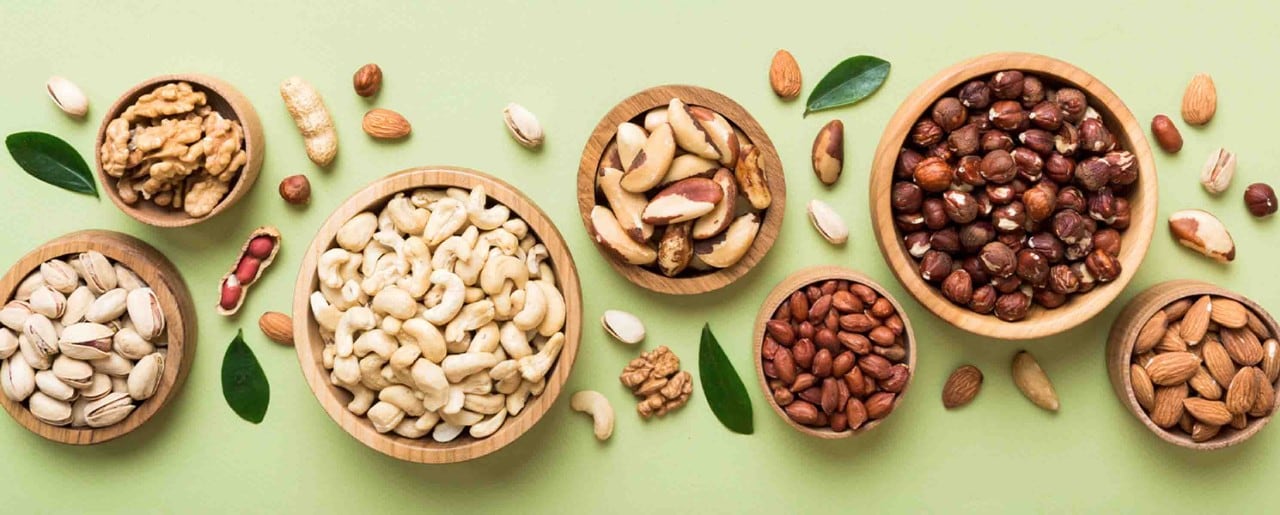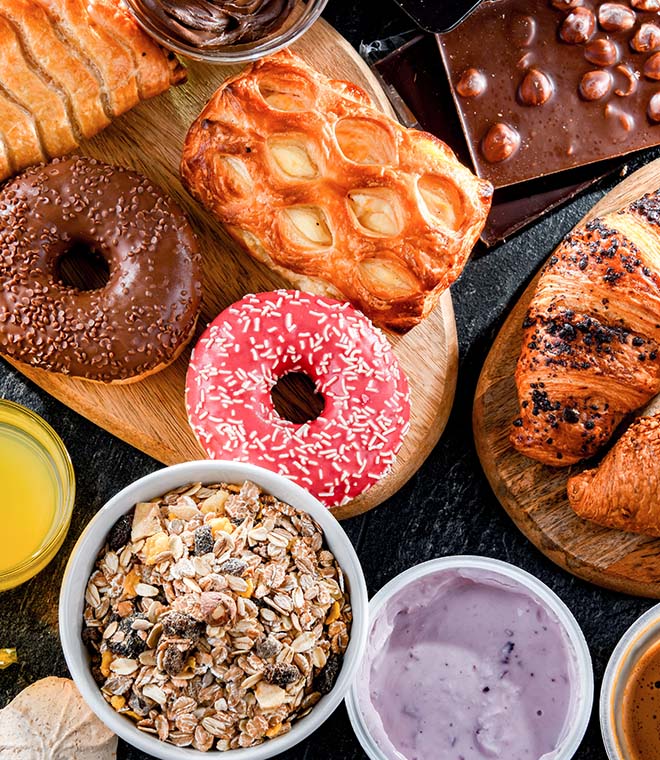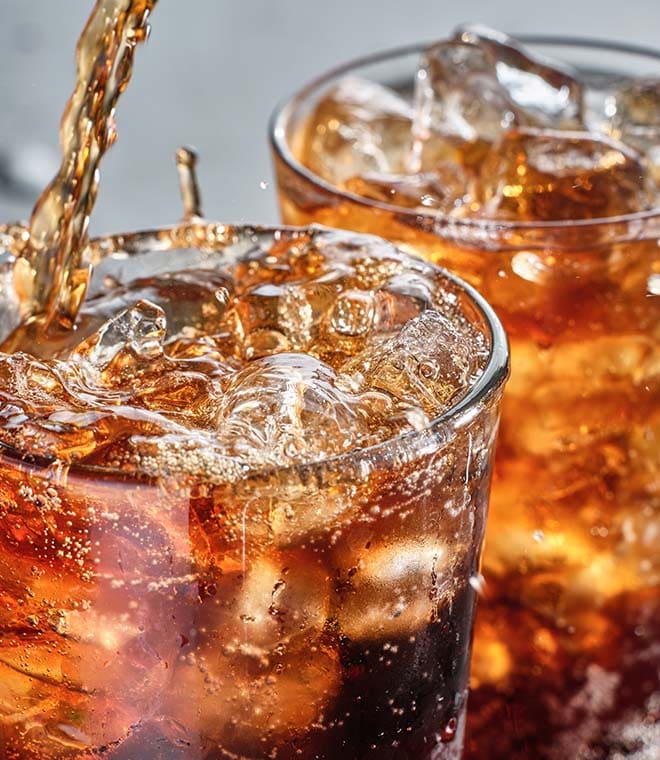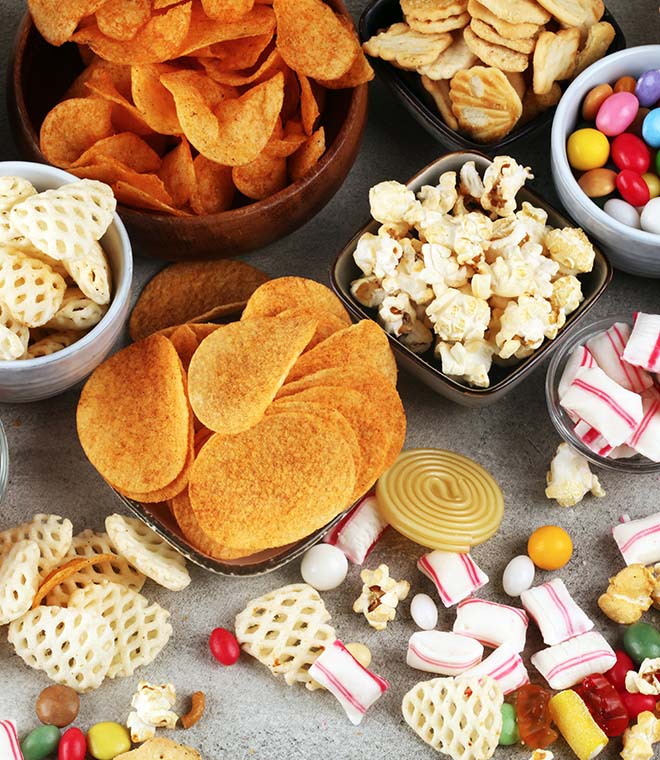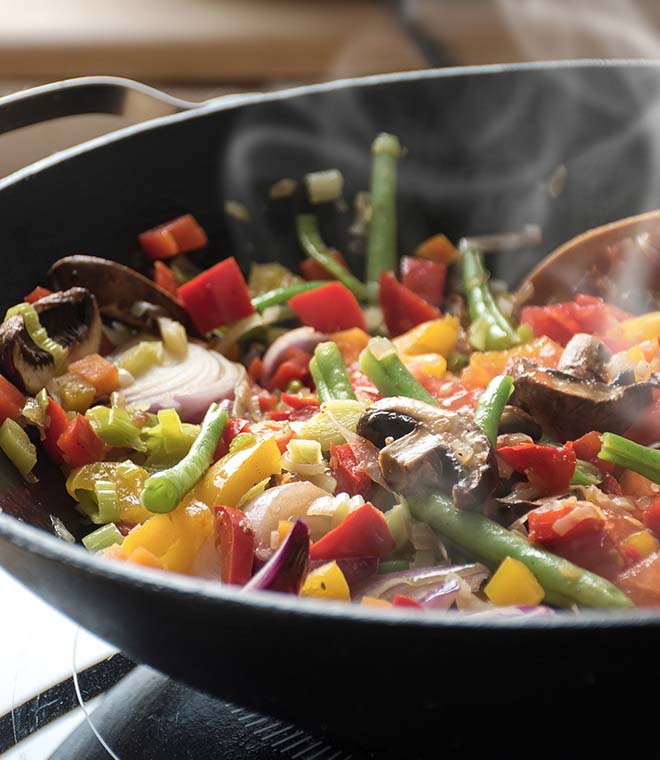Wellness
What are the best foods for lowering blood sugar?
By Michelle Katz, MS, RD, certified diabetes care and education specialist Apr 22, 2025 • 7 min
If you have prediabetes or type 1 or 2 diabetes, diet plays an important role in disease management. Eating the right foods can help keep your blood sugar levels under control to reduce your risk of health complications.
How does diet affect blood sugar?
How different foods impact blood sugar levels varies. Some foods, like starchy vegetables (e.g., potatoes and corn) and sugary sweets, can cause glucose levels to rise to a high level rather quickly. Other foods have a much more gradual effect. The glycemic index rating of a food is one way to compare the carbohydrate-containing foods you eat.
The glycemic index ranges from 0 to 100. The higher the glycemic rating of a food, the faster it can cause your blood sugar levels to spike. Foods assigned a high-glycemic index value are not considered ideal for a person with diabetes. On the other hand, low- to medium-index food options are generally better choices for blood sugar control.
Over time, eating more low-glycemic foods may help lower your average blood sugar levels, which reduces the chance of developing complications from diabetes. However, portion control is also important. Eating too many or large servings of foods with a low-glycemic index can contribute to weight gain, which can make it more difficult to control your blood sugar.
Keep in mind that understanding the glycemic index of different foods is just one tool you can use to help manage your blood sugar levels. Paying attention to the amount of carbohydrates you eat and choosing healthy foods are important parts of meal planning when you have diabetes.
What foods help with blood sugar control?
Some of the foods that may be included in an eating plan for someone with diabetes include:
- Beans: Various beans such as garbanzo, kidney, pinto and black beans may benefit people with diabetes. They’re a good source of dietary fiber, which has been shown to help regulate blood glucose. Like foods with a low-glycemic index, they don’t typically cause dramatic spikes in blood sugar. Beans are also filling, so they can help curb hunger and aid in portion control.
- Nuts and seeds: Nuts (such as almonds) and seeds (such as sunflower seeds) are generally considered healthy snacks for people with diabetes when consumed in moderation. Many nuts and seeds are high in magnesium, a mineral that assists with blood glucose control. They’re also rich in fiber and contain heart-healthy monounsaturated and polyunsaturated fats. Unsalted varieties are generally best because they contain less sodium. Limit portions to one or two handfuls per day. You can also add seeds and nuts to yogurt, salads or smoothies.
- Leafy greens: Kale, spinach and other leafy greens provide plenty of fiber and magnesium. They’re low in calories and carbohydrates. They also contain other essential nutrients like iron, calcium, and vitamins A, C and K. You can add raw leafy greens to salads. You can also add them to soups and stews.
- Low-glycemic fruits: There are low-glycemic fruits such as oranges, apples and berries that are packed with dietary fiber, vitamins, minerals, and antioxidants, which protect the body from free radical damage. Stick with whole fruits rather than juices since juice contains less fiber and may contain added sugar.
- Whole grains: Healthy whole grains provide dietary fiber, magnesium, B-complex vitamins and other essential nutrients. They include whole wheat, whole oats, quinoa, barley and brown rice. The glycemic index of whole grains is generally lower than that of refined grains, like white or wheat flour, so they have less of an impact on blood sugar levels. Pairing whole grains with a serving of protein like chicken, eggs or fish — or a healthy fat, like avocados or nuts — can reduce the glycemic response and lower the overall glycemic index.
- Shakes and bars for diabetes: People with diabetes who struggle to eat regular meals due to a busy lifestyle, lack of appetite or mobility issues may be able to supplement their diet with healthy shakes and bars. Specially made for people who have diabetes, shakes and bars act as meal replacements, providing an ideal balance of carbohydrates, protein and fats as well as essential vitamins and minerals. Choosing shakes and bars over other highly processed, ready-to-eat foods may help control blood sugar levels. It’s important to read the ingredients and the nutritional labels. Be sure to look for high fiber and low sugar content.
A healthy diet is important for controlling blood sugar levels but it’s usually just one part of a treatment plan. Exercise and weight management are also key to lowering and regulating blood sugar levels. Some people may also require insulin or diabetes medications. Your healthcare provider can design the right treatment plan for you and adjust it as needed based on your progress with controlling your blood sugar.
Updated by Rebeca Thomas, RN, BSN, April 2025.
Sources:
- https://medlineplus.gov/ency/patientinstructions/000941.htm
- https://diabetes.org/food-nutrition
- https://www.nutritionnews.abbott/nutrition-care/chronic-conditions/10-foods-and-drinks-to-help-manage-blood-sugar/
- https://www.hsph.harvard.edu/nutritionsource/carbohydrates/carbohydrates-and-blood-sugar/
- https://www.mayoclinic.org/diseases-conditions/diabetes/in-depth/diabetes-diet/art-20044295
- https://medlineplus.gov/diabeticdiet.html
- https://www.health.harvard.edu/diseases-and-conditions/healthy-eating-for-blood-sugar-control
- https://www.urmc.rochester.edu/encyclopedia/content.aspx?contenttypeid=56&contentid=DM113
- https://www.hsph.harvard.edu/nutritionsource/what-should-you-eat/whole-grains/
- https://www.stanfordchildrens.org/en/topic/default?id=fruit-vs-fruit-juice-whats-the-difference-197-30060
- https://www.fammed.wisc.edu/files/webfm-uploads/documents/outreach/im/handout_glycemic_index_patient.pdf
- https://www.hsph.harvard.edu/nutritionsource/antioxidants/
